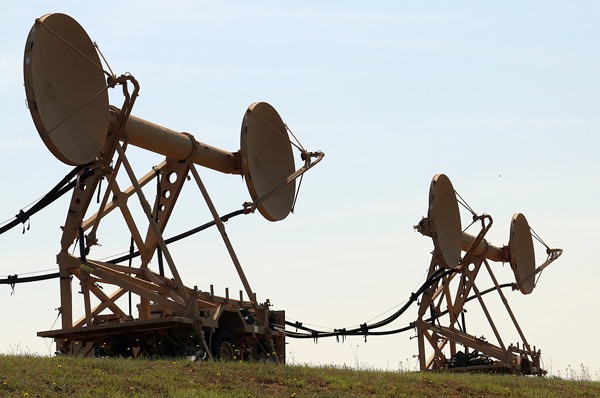An Army battalion from Joint Base Lewis McChord plans to team up with sailors from Naval Air Station Whidbey Island to conduct communications training at the Outlying Landing Field in Coupeville next month.
The Army’s 51st Signal Battalion (Expeditionary) is scheduled to practice using its troposcatter communication system, which transmits and receives microwave signals out of sight lines by bouncing radio signals off layers of the Earth’s atmosphere.
Sailors from NAS Whidbey’s Maritime Patrol and Reconnaissance Wing 10’s Mobile Tactical Operations Center 12 will train with the Army battalion. They use similar mobile systems while deployed overseas.
OLF Coupeville is an ideal site for training because landscape changes such as water bodies affect how the equipment is used, said Maj. Bonnie Conard, a public affairs officer for the Army.
“Every time they change the environment, you have to change the settings,” she said. “It gives them realistic training.”
The military has used troposcatter communications since the 1960s to transmit voice and data without satellites or high-frequency radio signals, according to Military and Aerospace, an industry publication.
Troposcatter communications are more secure because their radio waves are difficult for enemies to intercept.
The Army battalion provides communication during “significant or catastrophic events” between first responders, government agencies, the military and others, according to a prepared release from NAS Whidbey public affairs.
The training is scheduled for March 28-April 1. Civilians traveling by the field might see an Army tent sent up as an operations base and two troposcatter microwave systems that look like “Mickey Mouse ears,” Conard said.
The outlying field has been a focal point of controversy on the island because of anger and health concerns about jet noise from EA-18G Growlers conducting touch-and-go landing practice.
The same group as well as people living on the Olympic Peninsula also are upset the Navy’s plan to introduce electromagnetic transmitters to its electronic-warfare training to the peninsula.



